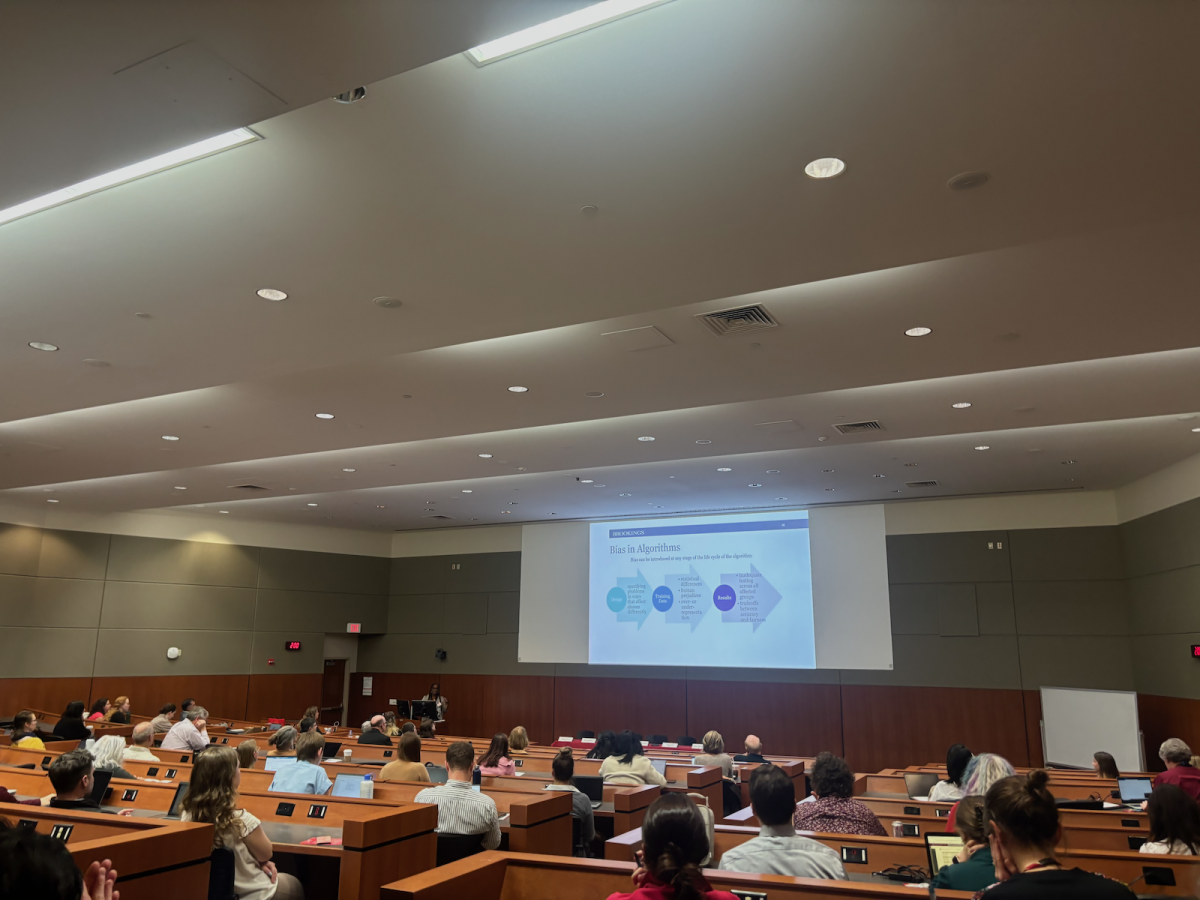Every year, the University of Wisconsin School of Medicine and Public Health organizes a Bioethics Symposium to bring together distinguished scholars from diverse backgrounds and explore topics that intersect with public health, medicine and ethics. In its 15th iteration, the 2024 Bioethics Symposium explored the theme “AI, Ethics and Health Care.”
The symposium examined the concerns of AI and its intersectionality with medicine. Some of the learning objectives for the 2024 symposium were to identify strategies for building trust with patients and describe emerging issues of AI related to social justice.
Artificial intelligence has changed the world of health care, where it has created opportunities for different diagnoses, patient care and clinical judgment, according to symposium website. But, it also has brought ethical concerns and challenges that can perpetuate inequality in public health.
UWSMPH Dean Robert Golden delivered welcome remarks followed by an introduction with assistant professor in medical history and bioethics Karola Kreitmair.
The first talk of the symposium was with associate professor of medicine Majid Afshar about the biases embedded in electronic health record databases. Afshar said training data plays a crucial role in reducing the stigmatizing language and inequity that exists in patients from different ethnicities.
The potential of Open Generative Pre-trained Transformer 4 — a multipurpose language model trained to generate images, email and other tasks — can perpetuate the racial and gender biases in the health care system, Afshar said.
“OpenAI GPT-4 are more likely to rate Black male patients as misusers of opioids than Asian, Black, Hispanic and white females … AI progress has been hindered by us [physicians],” Afshar said. “Learning how to build answers, doing backtesting and ensuring transparency in the code in multiple languages models is required.”
Director of the Center for Technology Innovation at the Brookings Institution Nicol Turner Lee spoke about strategies to mitigate bias in AI, how to identify the implications of AI use, how to explore and engage in real-life case studies to approach biases in data and how to provide support to health equity training on data and models used in AI.
Other speakers included K&L Gates professor of ethics and computational technologies at Carnegie Mellon University Alex John London, associate professor of philosophy and Canada Research Chair at McGill University Eran Tal and Kreitmair. The speakers addressed the challenges of safe AI use in healthcare, machine learning in healthcare and recognition in clinician-patient interactions, respectively.
The 2024 Bioethics Symposium aimed to create a roadmap to use AI responsibly to promote healthcare practices that reflect equity and ethics.


















